WASHINGTON (Oct. 23, 2009) -- The Army Reserve's top enlisted Soldier retires this month from an Army that's vastly different from the one he was drafted into almost 40 years ago.
"The Army Reserve has finally arrived," Command Sgt. Maj. Leon E. Caffie said. The Army has learned hard lessons, he added, and the Army Reserve now is on equal footing with the active component.
The sergeant major is a big man with a big voice, and he has used that voice to speak - often forcefully - for Army Reserve Soldiers throughout his career.
Caffie is one of the last draftees still in uniform. The nation drafted the young Floridian on April 2, 1970.
"I went through the induction center at Jacksonville, Fla., and eventually ended up at basic at Fort Jackson [S.C.] and advanced infantry training. I came home, and 11 days later my Dad drove me to the airport and I was shipped out to the Republic of Vietnam," he said during a recent interview. "When I went in, it was at night and there were tracers coming in and tracers going out. That has a tendency to focus your attention."
The sergeant major served with the 4th Infantry Division in Vietnam's Central Highlands. He earned his Combat Infantryman's Badge and his first Bronze Star in Vietnam.
In 1972, Caffie went back to Florida and entered the inactive reserve. He used the GI Bill to go to college, and in 1974 joined an Army Reserve unit in Gainesville, Fla.
"It was an eye-opening experience," he said. "It was a typical Army Reserve unit of the time. There were no expectations. You just showed up, they called your name, [and] you sat around and killed two days.
"Did you accomplish anything'" he continued. "Nothing. It was a true test of being a highly motivated reservist."
That era was the low point for the Army Reserve, he said. The United States was coming out of an unpopular war. Society was going through its own changes. Americans looked down at the Army Reserve - indeed, at all military services.
The mission of the Army Reserve was to be the strategic reserve in case of a Soviet attack against Western Europe. "But there was little training and little equipment," the sergeant major said. Still, he stuck with the service and took on more responsible and demanding jobs. Even when serving undercover for a civilian law enforcement job in Florida - Caffie wore a beard while training troops - he continued to serve.
And the Army Reserve itself began changing.
"The Reserve became more professional, and better at choosing personnel and keeping them motivated," he said. Army leaders also refined the Army Reserve mission, placing more of the combat support and combat service support in the component.
In 1990, Saddam Hussein invaded Kuwait, and reservists all over America got called to active duty. Some Army Reserve units did very well, Caffie said, while others needed more training once they reported.
"Overall, the Army Reserve accomplished its mission, but it woke up leaders about the problems," he said.
Operations Desert Shield and Desert Storm really changed the Army Reserve, he said. "It made us have a specific interest in how we train Soldiers and what data we collect," he explained.
In the 1990s, Army reservists served in Somalia, Bosnia, Kosovo, Africa, Asia and Central and South America. They performed real jobs, affecting real missions, Caffie said. "The military could not operate without the reserves," he said. Most of those Soldiers were volunteers.
With the attacks on America on Sept. 11, 2001, the lives of reservists again changed. By then, Caffie was a sergeant major, and he plunged into preparing his units for mobilization.
He deployed as the command sergeant major of the 377th Theater Support Command based in Belle Chasse, La., in November 2002.
"That was another eye-opening experience for me when we deployed to Fort Polk, La., for the mobilization," he said. "It was insulting." The mobilization deployment highlighted the shortcomings in the process, Caffie said.
Many of the reservists weren't trained for their jobs. Many had not qualified in their weapons. Many members of the unit were disqualified because of medical troubles "that they knew about, but we didn't," the sergeant major said.
"But the most disheartening thing was to be placed in inadequate barracks on north Fort Polk," he said. "There were holes in the floor, with weeds growing up through. That just showed me the lack of respect that they had for Army Reserve Soldiers. I'm not one to stay quiet about what I perceive to be unfair, and I voiced my opinion."
It remained a learning experience even once the unit got to the desert.
"We needed to train a multitude of people to do certain jobs rather than just relying on the indispensible person," Caffie said. "If that person got hit by a bus, what do you do then'" The unit also had to fire people for being grossly incompetent.
But the service has learned its lesson, Caffie said.
"Today is another story, and I always say the United States Army Reserve has arrived," he said. "It's very difficult, if not impossible, now to distinguish our reserve Soldiers from active duty."
Troops are trained at the units, qualify with weapons and understand the requirements for deployment, he said. Units come together and go through realistic scenarios alongside active-duty counterparts. Leaders understand what information is important and how to collect it. "We still have a way to go - because you can always get better - but we have arrived," he said.
On Aug. 29, 2006, this former draftee was sworn in as the command sergeant major of the Army Reserve.
"In Kabul or Baghdad, we have Soldiers volunteering to do tremendous things," he said. "These young men and women are always going beyond the expectations. They are truly American heroes. I do everything in my power to ensure that their voices are heard, and we need to tell their stories."
Caffie also is a spokesman for Army Reserve families. While the service is addressing the problems that are unique to the service, he said, more needs to be done because the service was so far behind. Reservists are dispersed around the country; they are not gathered on Army posts, and benefits need to be dispersed to where they live, he said.
"When we mobilize an Army Reserve Soldier, we not only mobilize the Soldier and the family, but the neighborhood and the town," he said. "We need to do a better job of telling these friends and neighbors what incredible things their Soldiers are doing."
The sergeant major said he decided to retire simply "because it's time." He will travel for a bit with his wife, and will move back to Gainesville, Fla., where he expects to get involved in helping local reservists and other pet projects.
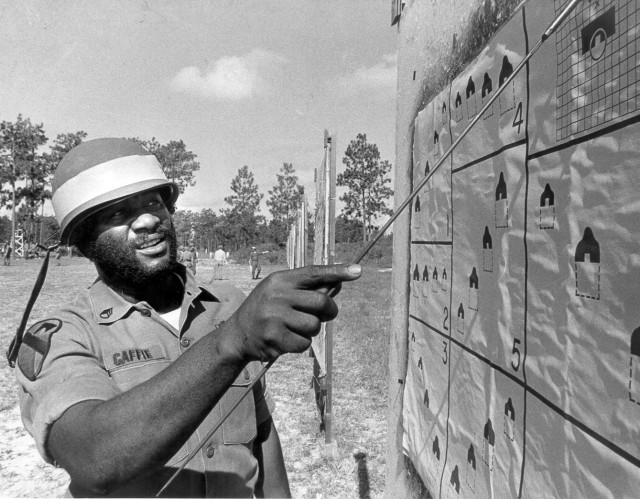
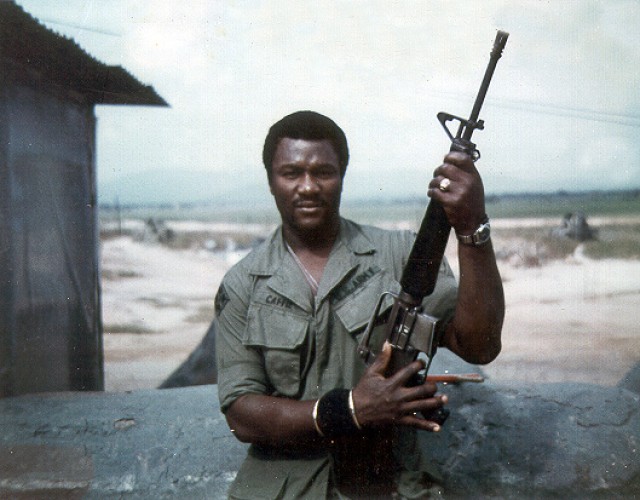
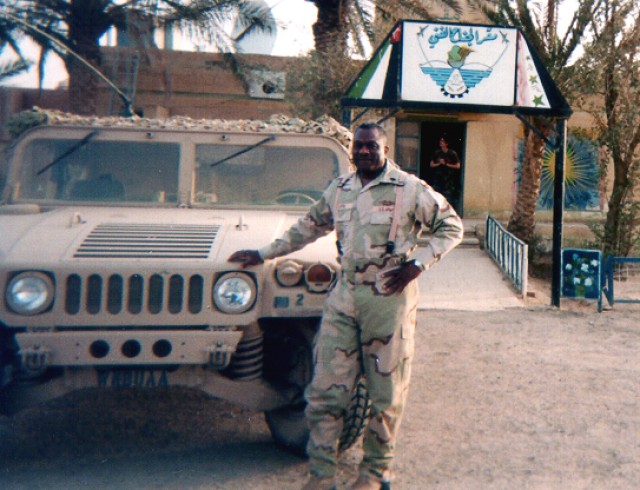
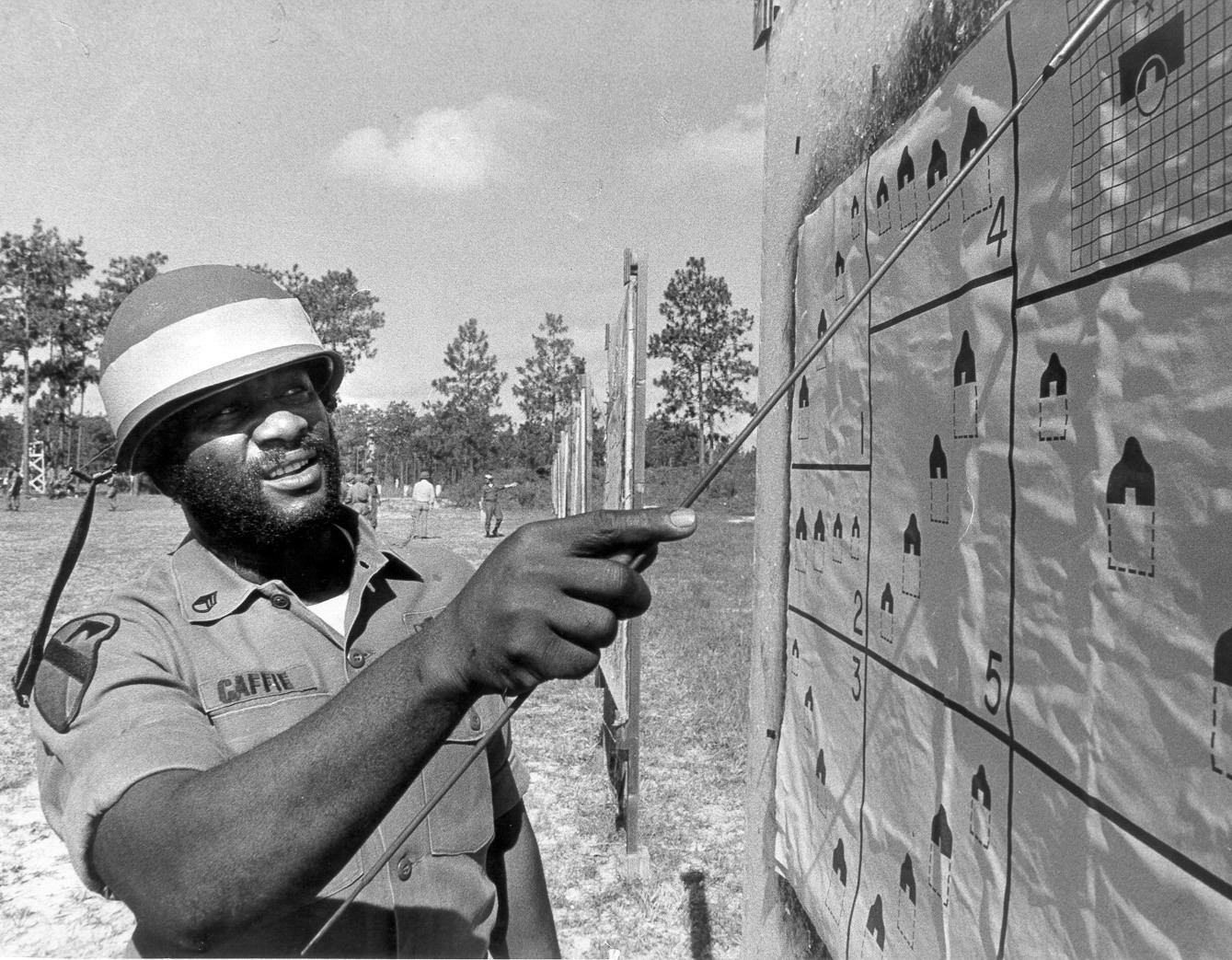
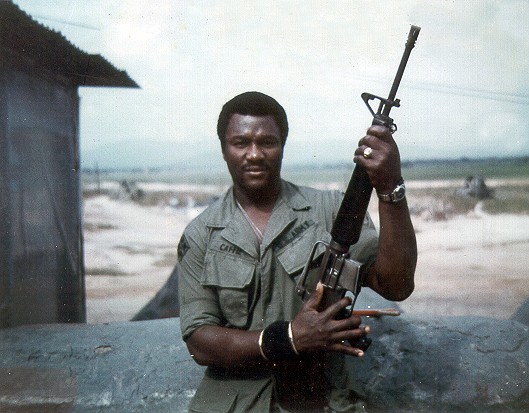
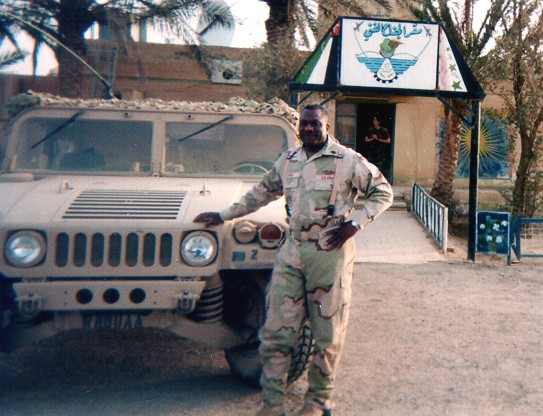
Social Sharing